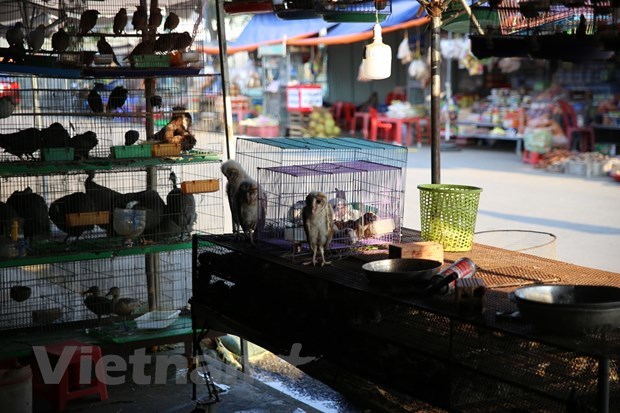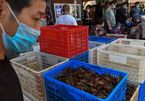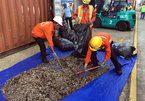Reporters, when investigating wildlife trafficking at the Thanh Hoa Farm Produce Market in Long An province, heard from the owners of the shops that birds, storks, turtles and snakes available at the market are from Tram Chim National Park, Lang Sen Natural Reserve in the border area with Cambodia. However, the wild animals have a legal status – from commercial farms.

Tam, the owner of a ornamental bird stall at Thanh Hoa Market, affirmed that her birds are ‘100 percent natural’, caught in the provinces in Mekong Delta’s provinces.
Tam stated that she can satisfy all orders placed by clients. “No worries. We have a licensed farm which is a screen for our wildlife trade,” she said.
To prove her words, she turned on her phone and showed the images of birds and storks caught from the wild, which are kept at her family-run farms. She affirmed that she only sells natural birds, because if she sells farmed products, she would take a loss.
Wild birds, turtles and snakes can also be found at Tam Nong Market in Dong Thap province, about one kilometer from the Tram Chim National Park.
The owners of the shops there said all the wild animals are from the national park.
| Wildlife traders reveal that most of the wild animals sold at markets are from the wild, but their documents say the birds are from farms raising animals for commercial purposes. |
“I just slaughtered 25 birds this morning and I have 50 more birds at home. If you want 200 birds, I will deliver products tomorrow morning, because I need to collect birds this afternoon,” T, the owner of a shop at Tam Nong, said.
At the floating restaurant, in front of the Tram Chim Tourism Complex, one can also easily buy wild birds.
A worker at the restaurant said there were not ready-made dishes made of wild animals. However, if clients want these dishes, they can order in advance.
Bui Thi Ha, deputy director of ENV (Education for Nature Vietnam), cited a Ministry of Agriculture and Rural Development’s report as showing that 20,000 establishments breed wild animals for commercial purposes.
The problem is that the policy on managing the establishments is loose with many loopholes.
ENV, which carried out a field survey in 2014-2015 at 26 establishments, found signs of using animals from the wild.
“We think some forest rangers lend a hand to traffickers to carry tons of wild animals to domestic and markets for consumption,” Ha said.
Thien Nhien

Coronavirus: Australia urges G20 action on wildlife wet markets
It's thought the Covid-19 outbreak may have begun in a Chinese market that sold wildlife alongside food.

Legal loopholes hinder Vietnam’s efforts in wildlife protection
Despite strengthened law enforcement to protect wildlife, legal loopholes are hindering Vietnam’s efforts, activists have said.
 Wildlife traders reveal that most of the wild animals sold at markets are from the wild, but their documents say the birds are from farms raising animals for commercial purposes.
Wildlife traders reveal that most of the wild animals sold at markets are from the wild, but their documents say the birds are from farms raising animals for commercial purposes.